Discussion:
You must be logged in to reply to this topic.
- Inspiring Our Students
-
January 23, 2014 at 4:13 am #13625
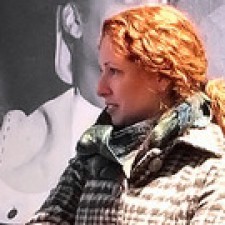
Prof. Karen GoodladParticipantThis will be a semester of great growth and learning for us all. Let’s start sharing our visions of our classrooms as a Living Laboratory now by viewing this TED Talk and sharing our thoughts of how we inspire our students:
http://www.ted.com/talks/ramsey_musallam_3_rules_to_spark_learning.html
What makes you curious?
What do YOU do in your classroom to inspire learning among our students?
January 30, 2014 at 7:19 pm #17429
Kelsey FoxParticipantI love literature, and I always enjoy challenging myself with thought exercises on what the motives for a character were, or what they would have done were the situation different, etc. These are the sorts of questions that can never be definitively answered, but I am always curious and really enjoy reading between the lines and trying my best to satisfy my own “what if?” questions.
That is why in my classroom (especially in reading classes), I try to step outside the textbook every now and then and bring in articles or short stories that make the students want to ask, just like the four-year-old in the video, “Why?”
Of course it’s very important for ESL students to pay attention to language and grammar when they’re reading, and I know that’s why most textbook readings were chosen, but I also think that sometimes it’s important to remind students that they can also get lost in a story and simply enjoy reading in English. Giving them something to read where, of course, they’re still learning about grammar and language and vocabulary, but also they’re caught up in a story and want to hear more and want to discuss and want to ask questions, well that is something I find really encourages students to participate and inspires them to learn more.
The Story of an Hour (http://www.vcu.edu/engweb/webtexts/hour/) is one I like to read around Valentine’s Day (the students get a kick out of reading a “love” story that is anything but traditional), for instance. We spend a lot of time discussing vocabulary in this short story but the students also seem shocked and excited whenever they are led to understanding the ending. It usually takes a few probings on my part to really get them to catch on, but it always sparks discussion and gets them really talking. I usually then have my students come up with three open-ended questions to ask their classmates about the story (“Why do you think…” type of questions). In between the discussion of imagery and social customs of the time period and questioning characters’ motives, the students are talking so much I usually have to quiet them down. (And generally my experience with ESL at CityTech has been that it is hard to get the students really freely talking sometimes.) This can also lead to new grammar words, research activities about the author, time period, or social customs, or often just encourages students to go out and find more short stories to read. I have requests after every class from students who want to find similar readings to look at on their own.
This is by no means groundbreaking or avant garde, and I’m aware of that. I also know that most of the textbooks I use have very useful information and readings that teach the students something they really need to know, and I make good use of them, but I don’t feel strongly about most of the stories or articles or essays that come handily bound together for the convenience of teaching ESL. I’ve always felt that teachers taught me the most when they were teaching what they loved because their passion would rub off on the class. While I love every aspect of what I teach, I try to bring in some of my favorite things that are sometimes less stylized and usually don’t come with a conveniently related worksheet to pair with, but through those materials I can get my students using English, having so much fun they don’t even realize how much they’re learning, and, of course, turning those gears in their heads and asking questions.
February 5, 2014 at 7:42 pm #17470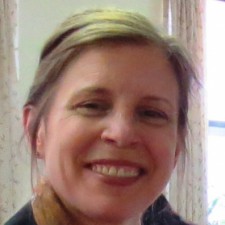
Prof. Susan DavideParticipantI am curious to learn new information, ways to engage my students in learning and any new pedagogical theories that encourage my curiosity and further my students to be curious about learning. I love getting my students’ involved and hearing their point of view because we all have different ways of learning and interpretation of information.
I encourage small group discussions using case scenarios related to the topic/lesson for students to discuss clinical problems and approaches from real-life practices (Dental Hygiene related). Principles of ethical dental hygiene practice are introduced early in the curriculum for students to develop into ethical practitioners.
February 8, 2014 at 12:17 am #17476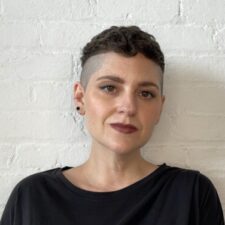
Laura WestengardParticipantI am always curious about the motivations behind creative production. As an English professor, I’m not only interested in literature, but I see almost everything around me as a kind of text. And I see these texts in terms of Hemingway’s famous iceberg principle—the small portion that is visible and explicit is dwarfed by the huge mass submerged beneath the surface. I am curious about the choices, motivations, and experiences beneath the surface that build and create the portion that we encounter. Like Musallam’s four-year-old daughter, my mantra is “why?” This probing approach allows me to bring texts into the classroom for student inquiry that they may never expect to encounter in college—commercials, music videos, human identity/self-representation, and yes, sometimes even literature. I try to take on the role of a seriously annoying toddler, pushing student thinking though an endless chain of “but why?” I hope to encourage them to actively question the texts being placed before them through extended (and critical) inquiry rather than simply digesting them as passive recipients. I find that liberally expanding the notion of “text” creates a productively destabilized environment, gives students confidence when they realize that they may already be experts in a field such as popular culture, and encourages them to question the world around them even when they step out of the classroom.
February 8, 2014 at 4:49 am #17477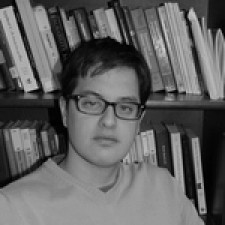
Johann ThielParticipantI am curious about how mathematics helps to explain the world around us. The study of biology, chemistry, and physics sometimes leads scientists to discover unintuitive or unexpected results. Why does this happen? Is there an elegant explanation for the phenomena we observe? In short, rather than shying away from the dreaded “What is this good for?” question, I try to attack it with examples from various fields.
In my classes I like to illustrate mathematical concepts through activities and demos. In the past I have used long-exposure photography, play-doh, model trains, slide rules and mechanical calculators in my lessons. My goal is to show my classes that there is more to a lesson than just a formula. Many mathematical breakthroughs have led to amazing advancements in technology. How do we currently apply these concepts? For that matter, how did we apply those concepts before innovations like the transistor? I want students to do more than just understand a formula, I want them to appreciate it and understand the deeper implications it might have
February 12, 2014 at 5:36 pm #17516
Aida EguesParticipantLife itself makes me curious. There are so many interesting things around us, and beautiful existences everywhere I look. Everything and everyone has a value, although it may not be apparent, acceptable, or even explainable at the time. I am always asking, “If…, then…, so what…?” Is there only one way to see things, do things, affect things, have results? To me, not necessarily so. I look at the world as fascinating. I use all of my senses to take in details. With students, I ask for them to look at the world through different lenses, using different senses, asking questions, taking a step back, and being bold in being anything but ordinary. I use games in the classroom, case studies, scenarios, question and answer sessions, stories, narratives, and images to evoke immediate responses and carefully constructed plans of action. As future and current nurses, students need to learn and then demonstrate an understanding that people learn in different ways, for different reasons. Students need to act as detectives to engage in accurate and effective assessment, diagnosis, planning, implementation, and evaluation. We have to ask and be unafraid to ask why things are the way they are, or we will take too long, if ever, to find the answer to, “Why not?” Life is a great and wonderful journey; being curious is the fuel that keeps the journey viable and rewarding.
February 13, 2014 at 7:22 pm #17519
Kylie GarcelonParticipantRecently I have been asking my students to engage in mediated debates on current issues in the culinary arts and global food issues. It is incredible to see the students explore and share their ideas on critical issues in our industry. During these debates I have observed students begin to think critically and begin to extend themselves beyond the percieved borders of some of these topics (food waste; global food distribution etc.).
With social media I find that often students will be inclined to accept exactly what they are seeing on-line (or reading). These class debates (mediated) allow students to examine and think about what is actually true OR, even better, when there are conflicting points of view that can often have valid arguments on both sides!! It is definitely exciting to watch and allow the students to engage in this process. I sometimes follow this up with a homework assignment or a reflection piece.
Thank you for posting. I have enjoyed reading your posts.
KylieFebruary 14, 2014 at 5:55 am #17520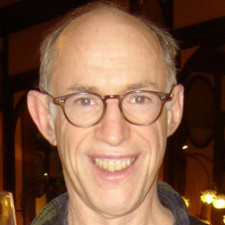
PaulMemberI am curious by nature. I was born that way. Nothing makes me that way. Overcoming fears of the unknown has always been the challenge. Risk taking exercises and enhances my courage. This process allows my spirit to soar as I follow the dictates of my heart. I love life and find all aspects engaging. Whether it be the humanities, mathematics, science, the arts, philosophy or a simple walk in the park, I find excitement in the moment. My passion for life and my willingness to practice awareness, no matter how painful it can be encourages my willingness to ask questions while living with doubts during my the pursuit of higher Truth. This peaks my desire to understand all of Life and frees my soul to explore and live a life of Love.
Building my students confidence, teaching them to take risks, to ask questions and look within while following the guidance of their own hearts has become the foundation I have sought to establish within my classroom environment. I have found that once a student feels a sense of confidence, the innate talents hidden within are free to be expressed. The focus has never been on grades, but on the pursuit and expression of love. I encourage my students to understand that that this process is absolutely necessary as a path to the realization of their dreams in all of life, not just for the classroom. I seek ways ways to open their hearts by challenging them to Be. In doing so I seek to inspire them to participate in the process fully.February 14, 2014 at 12:50 pm #17521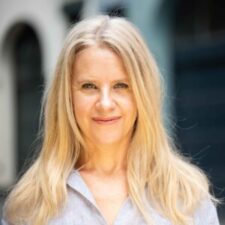
Jennifer SearsParticipantBecause I teach so many freshmen, I find many of my students are very open and excited about being new to college. As a result, they are curious about topics we address in English class, about being a student, and about what is required of them as college students. Students who aren’t as obviously “curious,” often seem to be dealing with fear of failure in some way. The second rule Musallam discusses in his TED Talk, “embrace the mess” or “trial and error,” is harder for students in my experience in the English classroom. Students are so afraid of saying something “wrong” or misreading a text. Thinking deeply, the most rewarding part of intellectual work, often requires students (and instructors) to be question what they believe or make mistakes and “revise” or try at least try again.
Many of the above responses refer to classroom debates. I’ve found debates work very well in my classrooms as well. Students who are reluctant to engage spontaneously are sometimes eager to join a debate because they can prepare with a group their ideas in advance. As has also been mentioned, small group activities (that involve reporting back results) also creates good discussion. I’ve found teaching upper level students in Advanced Career Writing gratifying because I notice how much more productively these experienced students work and enjoy working together compared to students entering the College. The collective efforts of first-year instructors truly shows in these more academically mature students..
February 23, 2014 at 3:51 am #17557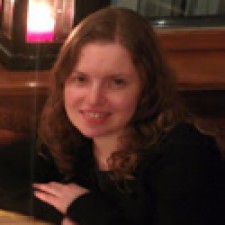
Inna GuzenfeldParticipantI teach ARCH 3640: Historic Preservation Theory and Practice in the Architectural Technology department. Many of my students are immigrants and the experiences they bring to the classroom are just as valuable to me as the subject matter itself. On a basic level, my role as professor is to impart information that relates to their profession. What interests me more, however, is finding a way to connect preservation concepts to their personal experiences. Historic preservation is built on many subjective concepts (e.g. cultural significance) that are constantly debated in the field. In fact, critical examination of theory and practice allows the field to evolve and adapt to changing economic, political, and social realities. I
n my course, I use multiple tools and methods with the goal of getting students to think critically about all of these dimensions and how they relate to architectural design. For example, I teach a special class on the legal basis of historic preservation, because one of the first questions I get is “what gives the City the right to designate landmarks?” Students may conclude that landmarking is not a legitimate form of land use control but it’s important that they have the background to analyze this issue and back up their conclusions.
I also make use of high-quality visual presentations and videos that give students a sense of how preservation issues play out in the real world. Compared to other courses in the program, my class is less focused on material science but this is actually encouraged by the department. It’s important that students master critical aspects of their profession above and beyond technical design skills. History and theory courses, though often treated as cumbersome electives are a tremendous opportunity for students to develop values and philosophies that influence their professional practice.
At the conclusion of my course last semester, students described how what they learned in ARCH 3640 influenced their work in design studios. Specifically, they began asking questions and proposing new solutions to design problems that they had previously approached with a less critical perspective. I was incredibly proud that the students were able to make these connections and take away so much from my class. They really ran with their curiosity and made the course material their own. More importantly, they were able to challenge their own preconceived notions about preservation and adopt new, highly nuanced viewpoints.
Overall, I would say the key to arousing students’ curiosity is giving them space to express their ideas and examine them in a new light. Beyond that, it’s important to engage them on a personal level with effective methods that extend their experiences while achieving set academic goals.
May 13, 2014 at 5:44 am #17976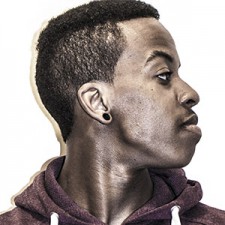
Phil MitchParticipantHi Professors,
I am not sure if you are all Professors, but I’d assume so by the title of this small discussion. I think you should tell these things to your students. I think its interesting that you guys look forward to something when you pick your text. Until now, I thought you all just pick it because you KNOW it and you KNOW that it fits into your planned reading. Its good to know that you guys look forward to something when picking reads for us. I’m a student and I think these discussions are fun to read because I just think you guys are doing your job. Passion is contagious and we can pick up on it. Emily Stanback, my 1121 professor, was a very passionate professor and she showed it during her classes when she’d do things like act out Frankenstein’s inhumane actions so that we’d have a better idea at what was really going on.
P.S. As a freshman or lower sophomore I would have completely ignored this, so good luck to you 1101 and 1121 professors. 1121 courses take place around the time where the student realizes that this is the beginning to the rest of their life.
-Your friendly neighbor hood openlab student!
May 13, 2014 at 12:45 pm #17978
Prof. Karen GoodladParticipantDear Phil,
Yes, we are all faculty and most of the posts are from Part-time faculty. I appreciate that you took the time to read our thoughts and to engage in your education.We are aware that as a student progresses through their studies their level of awareness changes, I am thrilled that you have become more aware of what we do as faculty to create a positive learning environment for our students to thrive in. We do what we do for your benefit and it has been an honor to work with a group of such dedicated faculty with exciting ideas and a passion to help students find their own success.
I wish you luck as you continue at City Tech and through your career.
Prof. Goodlad
May 13, 2014 at 2:01 pm #17979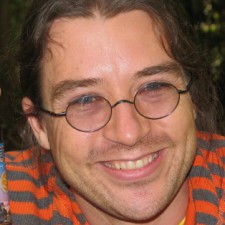
Jonas ReitzParticipantHi Phil,
Just wanted to say that your post made my day – it’s great to hear from a motivated, involved student! Feel free to come back any time and share your thoughts – as you have noticed, there are many professors at City Tech that are always looking for inspiration and as a student your voice can make a real difference in these discussions!
All the best,
Jonas ReitzMay 21, 2014 at 4:16 am #18000
Phil MitchParticipantHi Prof. Karen,
Thanks for wishing me luck and though I am graduating, I will take that and apply it in my later career.
Jonas,
I’ve known for about 2 semesters that at the end of a semester, professors are required to write about their course and maybe what the students take away from the course. Maybe you can start a blog that talks about what the students gain from the course.(posted by students) You could inform students of this and it could help professors in many ways!
P.S. I had been looking through my professors profiles to see how active they are and I was led here through Prof. Laura’s profile. I’ll probably remain active here for as long as possible but until become inactive, feel free to share other discussions that could use a student’s voice.
You must be logged in to reply to this topic.


